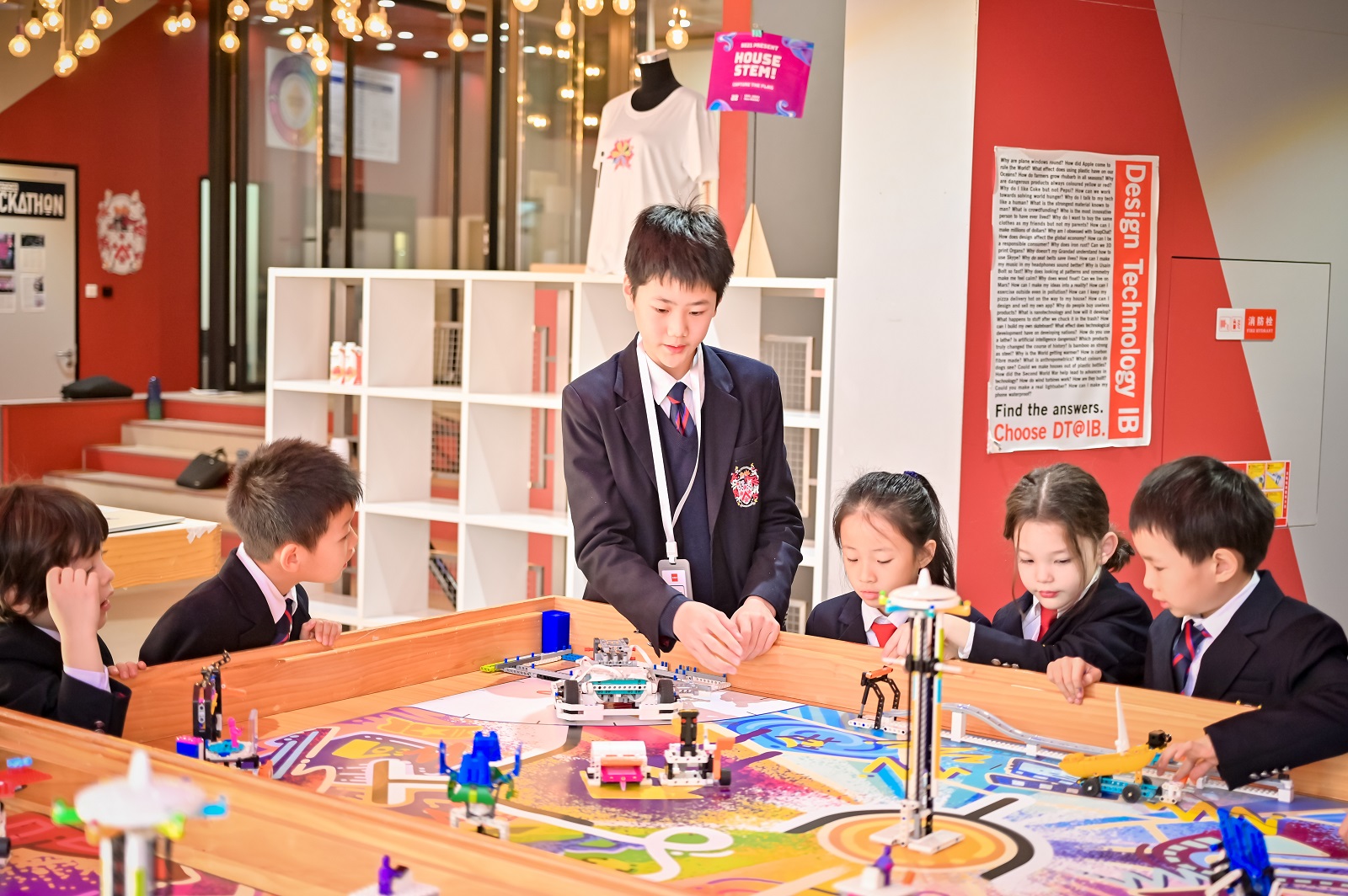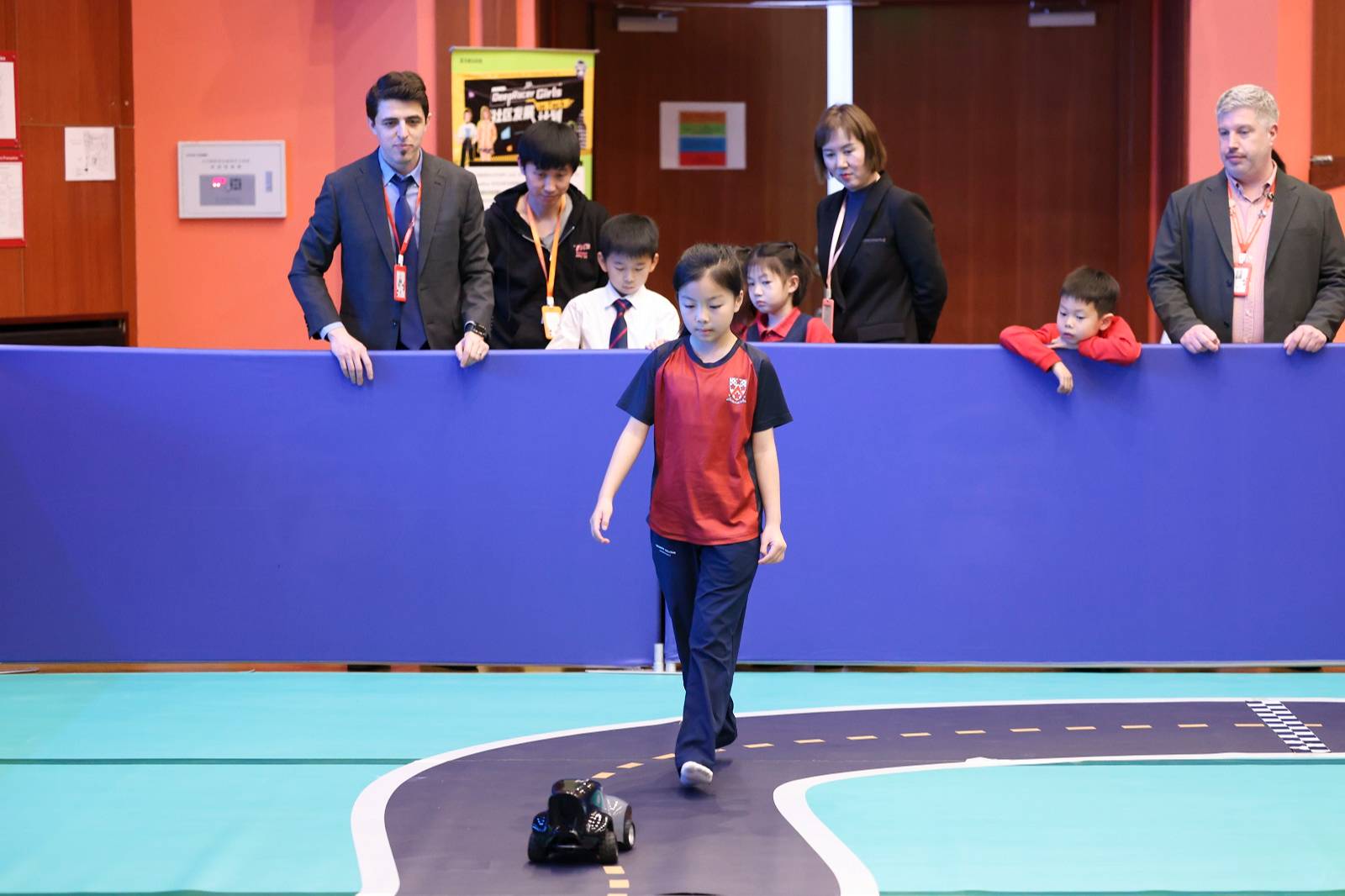Learning Principles & Innovation
Find out more
A Tradition of Learning Innovation and Evidence-Based Education
At Dulwich College Beijing, students come first. As part of a family of schools that draws strength from its founding school’s history of philanthropy, pioneering spirit and innovation, we are committed to evidence-based educational initiatives that are proven to boost student achievement and wellbeing.
The College partners with leading educational experts, such as the UK-based Evidence Based Education (EBE) group, to select educational initiatives that will add the most value to our community and ensure that each student reaches their personal best using refined value-added measures that not only track an individual’s academic progress but also character development.
Research highlights that learning becomes more effective when key indicators are clearly defined and communicated to the broader school community. To support this, our Learning Principles are prominently displayed in every classroom, providing an accessible guide for all stakeholders and empowering students to take ownership of and self-direct their learning journey.
Educational Initiatives Across the College, and How We Use AI to Support Them
At DCB, we believe that continuous learning for both students and staff is key to driving innovation and growth, with AI playing a pivotal role in this evolution.
To further support this vision, we established the Centre for Educational Technology and Innovation (CETI) in 2021. The CETI team focuses on enhancing both instructional and administrative technologies across the College, while championing technology-driven teaching and curriculum collaboration.
In doing so, CETI leverages the seven digital affordances to empower educators and students, empowering educators and students to embrace ubiquitous learning, foster active knowledge making, and enhance learning through multi-modality. The integration of collaborative intelligence encourages teamwork and shared problem-solving, while recursive feedback promotes continuous improvement in teaching and learning. CETI also supports metacognition through digital tools that help learners reflect on their processes and facilitates differentiation to personalize learning experiences for diverse needs. Ultimately, by harnessing digital affordances, the CETI team aims to create flexible learning environments that promote engagement, accessibility, and collaboration among students and educators.
Through initiatives like STEAM, design thinking, entrepreneurship, and ISTE standards, CETI is transforming the student learning experience, redefining how learning is not only delivered but also supported by cutting-edge tools and approaches.

1. Live time assessment, feedback and reporting
The quality and frequency of teacher feedback are among the most significant factors in accelerating student progress and development. At DCB, we leverage AI to enhance feedback through tools like Magic School, enabling teachers to assign AI-powered chatbots to students. These chatbots provide real-time interaction and feedback on specific goals, creating dynamic feedback loops that go beyond the traditional model where students might wait for feedback from a single teacher. This approach allows students to respond to feedback faster by refining their strategies for improvement.
For younger students, we employ AI-powered reading and search coaches to help them build essential skills. The reading coach provides instant feedback on pronunciation and fluency, allowing students to practice challenging words while teachers monitor progress through detailed reports. By offering guidance anytime, this system increases the frequency and immediacy of feedback, complementing the personalised feedback that teachers provide and enhancing the overall learning experience.
AI has also streamlined various teacher tasks, including grading and lesson planning. For example, teachers can scan handwritten student work into an AI platform that analyses the content and delivers personalised feedback and improvement suggestions in under a minute. These tools can identify patterns and trends across a class, enabling teachers to address common areas of difficulty more effectively. Additionally, platforms like Mizou allow teachers to create AI chatbots that serve as topic-specific tutors and prepare differentiated lessons and activities for students with varying abilities, saving valuable time and improving instructional precision.
Furthermore, the transparency of feedback, assessment indicators, and student responses ensures that parents have access to precise and timely information. This openness enables parents to actively engage with their children and collaborate with teachers in real time as feedback is provided, fostering a supportive learning environment.
2. A more effective approach to evaluating the quality of student learning
An effective quality assurance framework can be further enhanced by combining real-time assessment initiatives with classroom evaluation approaches centred on student responses and feedback. Live-time feedback allows students to engage with teacher input more thoughtfully, developing strategies for improvement. This process enhances their ability to articulate their learning progress and identify specific, actionable steps for further improvement. As a result, students build a more confident and precise vocabulary for discussing their learning.
Some teachers use platforms like Mizou, which allows them to create personalised AI chatbots for tutoring specific topics. This gives teachers visibility into student conversations with the chatbot, allowing close monitoring of student progress.
A significant benefit of this approach is an increase in student self-advocacy as they become more adept at responding to questions about their learning. This significantly raises personal expectations and builds confidence that they themselves can take the next steps required to improve.
3. Life-long skill development for wellbeing
At DCB, we believe that student wellbeing and academic preparedness are two sides of the same coin. Subsequently, by instilling the values, skills and habits that enable young people to take ownership of their learning and wellbeing, they will find purpose earlier rather than later in life. Developing both resilience and overall perspective is a proven strategy in helping students overcome mental health challenges.
4. The Dulwich Difference – life-long skill development for future success
DCB’s innovative STEAM curriculum, called SE21 in honour of our founding school’s London postcode, goes beyond activities, programmes or spaces. We believe it is only through establishing a transformative learning culture that students are able to develop skills and dispositions to successfully engage in life beyond graduation. This will require the development of creative and financial literacy, as well as digital literacy and the ability to invent opportunities rather than follow established careers.
5. Measuring individual personal best
At DCB, we use Century Tech, an AI-powered adaptive learning platform, which personalises learning by adjusting the content based on individual student performance. Century Tech breaks down lessons into small, focused learning nuggets aligned with the British national curriculum. After completing a task, the AI evaluates how well students perform, how much time they spend on each activity and their response patterns. It then reconfigures the next lesson to meet their specific needs, ensuring that each student’s learning journey is tailored to their current understanding. This means that within a single classroom, students can be working on entirely different activities based on their performance, which keeps them challenged and engaged.
Our partnership with Evidence Based Education provides high-level training for DCI teachers to integrate value added data analysis into their planning and teaching. With the use of value-added metrics from Durham University’s Centre for Evaluation and Monitoring every teacher can benchmark student progress against individual capacity.

This helps us identify whether learning is truly challenging and whether student progress goes beyond the headline figures of IGCSE or IB attainment scores. These metrics can then be shared with students, and as such a Dulwich education will empower each student to move forward from their own starting point and reach personal targets that can be tracked and celebrated. Used alongside our ATL skills framework, these value-added tools become a powerful means to identify the progressive development of resilience and self-management essential for success in education and life
6. Formative assessment, transferable thinking and deeper learning
Recent changes to the English National Curriculum’s assessment approaches have prompted discussion about the best methods for evaluating student learning. Beyond assessment, this has prompted a review of the curriculum and the importance of ensuring that classroom practice provides countless opportunities for student learning. As a family of schools, we are creating new domains of assessment that embed knowledge, skills and concepts deeply, not superficially. Subsequently our assessments in both timing and quality must capture true student internalisation of learning rather than simply rewarding short-term memory recall. Many of our school leaders and teachers worked closely with our partner Evidence Based Education in Academic Year 2018-2019 to develop the most effective means of assessing students to ensure maximum progress and understanding is achieved by all.







